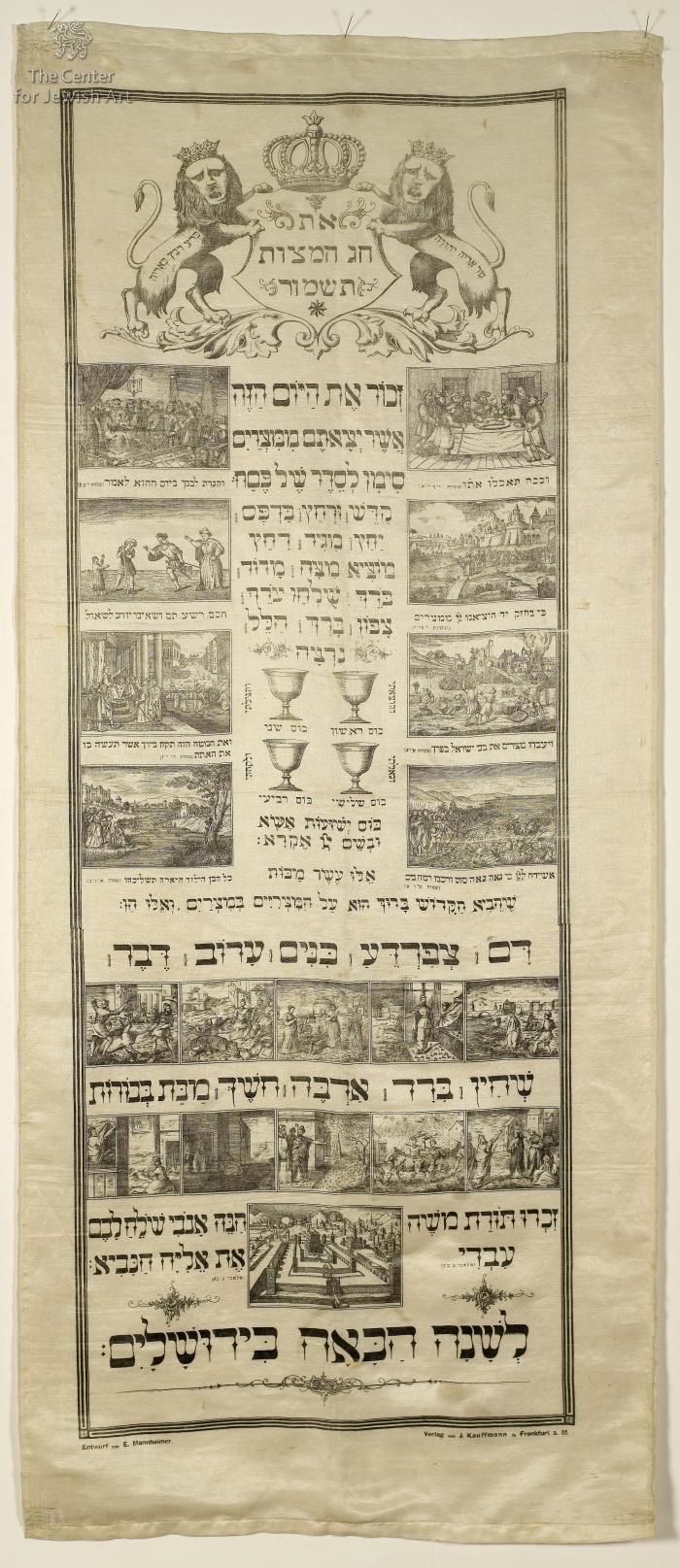Obj. ID: 39207
Sacred and Ritual Objects Passover towel, Frankfurt am Main, circa 1925

The following description was prepared by William Gross:
The use of a decorated towel cover is a custom largely limited to the German-speaking areas in Europe. These covers are usually embroidered and date from the 18th and 19th centuries. This object was used to make the plain towel a decorative item for the festive evening.
This 20th century version of the towel cover is of silk fabric and printed with illustrations from the 1695 Amsterdam Haggadah. It was published by the firm of J. Kauffmann, a famous Jewish publishing and antiquarian house of long standing in Frankfurt a.M. in the 19th and 20th centuries. Depicted in the printed illustrations are a number of illustrations taken from the famous Amsterdam Haggadah. Since some of them, such as the plagues, were not used in the first edition of 1695, it is reasonable to assume that the model here was the second edition of 1712 when these picture appeared, themselves copied from an early 17th century Haggadah edition from Venice. This fine silk example is perhaps the final version of a centuries old custom that has disappeared after the Holocaust.



